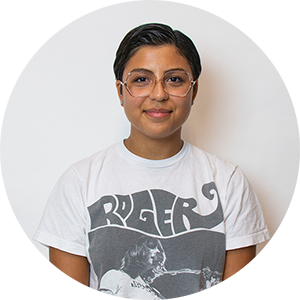Like last year, members faced difficulties accessing UOSU’s Sharepoint prior to the meeting
The University of Ottawa’s Students’ Union (UOSU) held its fall General Assembly (FGA) on Nov. 26 at 4 p.m.. The meeting, which has been held virtually for the past two years due to COVID-19, was offered in a hybrid format.
The meeting began with a land acknowledgement from the Indigenous student representative on UOSU’s Board of Directors (BOD) and co-president of the Indigenous Students’ Association, Quanah Traviss. He said that since attending BOD meetings, he has always abstained from approving the agenda due to the land acknowledgement sections.
“I cannot bring myself to vote yes on an agenda where the scripted land acknowledgement is read as if it’s just another item to check off the list,” he said.
Following land acknowledgements and the approval of the agenda, the Executive Committee gave their updates, which was followed by a question period. While UOSU had allotted 30 minutes, the updates and question period lasted almost a full hour.
When voting on constitutional amendments, members of the FGA voted in favour of a winter General Assembly, which will be held sometime between February and March of next year. Additionally, members voted on three positions: one on pushing for hybrid learning options, one in support of Iranian students, and one on working against over-policing on and near campus. All three amendments to UOSU’s positions book passed.
The first motion on the agenda was the approval of the UOSU by-election results, which included the ratification of Ratisbonne Mukadi Kazadi as equity commissioner and Hannah Wiedrick as a second BOD representative from the faculty of arts. Both Mukadi Kazadi and Wiedrick were ratified, and the appointment of a public accountant, the next motion, was also passed.
The first motion from members included the adoption of a sexual violence policy, brought forward by Alyssa Peyton.
“From the things I’ve witnessed personally as a student, from talking to other students, my own experiences, also my volunteer and paid work at the WRC [Womens Resource Centre], I’ve noticed the lack of sexual violence policy does present a really big issue for students on campus in terms of safety and access to support and as well the prevention of sexual violence,“ said Peyton.
“I think having a policy is really important and I think it’s important to stress that it is survivor-centred.”
The motion was passed unanimously.
Multiple motions which had been added to the agenda were rescinded during the FGA, including the hiring of a multi-faith coordinator — which UOSU is already in the process of doing, and will conduct interviews over the next few weeks — and the abolishment of the CVUO.
One motion, presented by Max Christie, sparked a heated debate amongst attendees.
Christie’s motion for expanding participation in student politics asked the elections committee to find a strategy to “increase the rate of participation in the affairs of the union over the long term.”
He presented a number of possibilities for how to achieve this, one of which asked the elections committee to investigate the possibility of “[removing] the restriction that all executives must … be fully bilingual above and beyond what the University of Ottawa considers ‘fluent.'”
Shailee Shah, a fourth-year political science student, stated that while she agrees with a motion to ensure participation in student politics, there were many issues with the language Christie used in his motion.
“It completely discludes our principles of equity at this university. This is a bilingual university where we have elected representatives representing these bilingual students… If you wanted an English-only university, go to Carleton,” said Shah.
After countless amendments and divided discourse, the motion did not pass.
Two motions were added, and passed, to add time to the general assembly. However, as the meeting progressed, it was clear that the assembly was getting tired and even a little restless. Chair of the Board, Paige Holland, began limiting the time people could spend speaking on a motion and cutting them off mid-sentence, which was not received well by the members of the assembly.
Kareem Brochu, president of the Telfer Students’ Association and a former UOSU BOD representative, took a moment to acknowledge the short and “disrespectful” actions of Holland.
“Throughout the entire meeting, the chair has been a taunt disrespectful to speakers, in rushing them to finish speaking, or just asking them in an unkind way to leave the mic. I think that there’s a way to conduct a meeting without having to be disrespectful like that,” said Brochu.
He continued, “a lot of us have chaired meetings before … I understand that it can be stressful and tiring, but everybody here is here for the benefit of others. They’re here to advocate, they’re not here to waste anyone’s time, so I think we should just all give a little bit more respect to the people speaking.”
Holland did not respond, and continued with accepting speakers.
Brought forward as other business by Traviss, the last motion to be passed at the FGA was a push for bilingual rights for Indigenous students. The motion, which would alter the constitution to allow Indigenous students who speak a combination of either French or English, and a language Indigenous to Turtle Island, to run for an executive position, was passed unanimously.
With a total of three separate motions to increase the length of the meeting to ensure diligence was given to all motions on the agenda, this year’s meeting lasted just shy of seven hours, adjourning at 10:45 p.m. In recent years, the FGA has gone far longer than anticipated times, ending just before midnight last year, and as late as 2 a.m. the year before.
The next UOSU General Assembly will be held in the winter semester.
Editor’s note: This article was edited for accuracy on Dec. 1.






